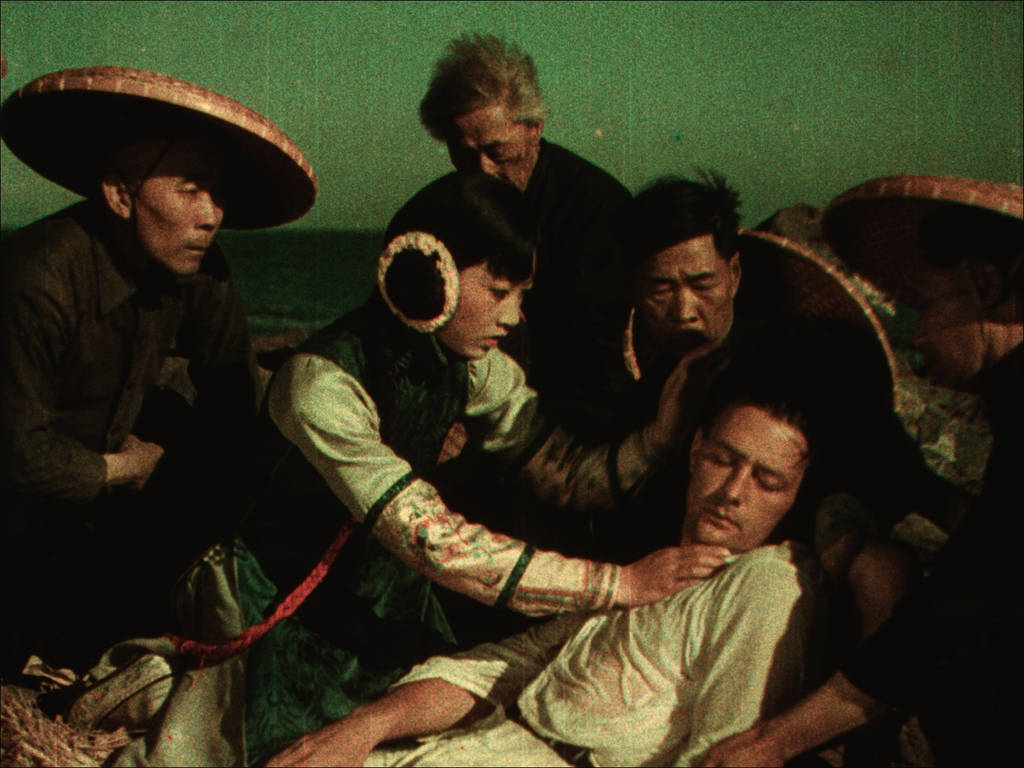
Film Matters: Please tell us about your article that is being published in Film Matters.
Sarah Kazuko Chow: My article examines the life of Anna May Wong, a Chinese American actress who rose to fame in the 1920s, and her complicated relationship with her racial identity. During the silent film era, Wong was the only prominent Asian American actress, and one of the few women of color to find leading roles in Hollywood. Through looking at Wong’s dealings with the press, I argue that she traversed between two contradicting public personas, the exotic foreigner and the loyal American, to connect with both Asian and white audiences. While she belonged to both the East and the West in the eyes of audiences, Wong’s words reveal that she felt like an outsider in both. The struggles she faced in overcoming racist perceptions of Asian Americans and navigating between two identities that didn’t fully represent her place in society, are challenges that many actors still face today. Ultimately, the movement for greater Asian American representation in cinema began with Wong.
FM: What research and/or methodologies do you incorporate in your article?
SKC: Since I was trying to paint a picture of the way Anna May Wong was portrayed at the height of her fame, I mostly looked at film magazines from the 1920s and ‘30s, including Photoplay, The Picture Show Annual, and Picture Play Magazine. By researching interviews with Wong from different points in her career, I was able to see the way her relationship with her identity changed over time through the way she spoke about her Chinese heritage. The photos of Wong in many magazines were also helpful in showing the way the media portrayed her, as she was often dressed in stereotypical exotic clothing.
FM: Describe the original context for/when writing this article while an undergraduate student.
SKC: I wrote this article as the final paper for the History of International Cinema I course I took with Professor Isabel Serna. I have a strong interest in Asian American representation in cinema, so I decided to look into Anna May Wong’s film career.
FM: How has your department and/or institution supported your work in film and media?
SKC: The film program at the University of Southern California (USC) has motivated me to broaden my knowledge of film history and watch films that are outside of my main interests. I’ve had the opportunity to research areas of film history that are of particular interest to me and create films that tell Asian American stories.
FM: How have your faculty mentors fostered your advancement as a film scholar?
SKC: Before taking Professor Serna’s class, I had little interest in international silent films. Her class gave me a new appreciation for the history of cinema and inspired me to look into neglected areas of film history. My TA, Peter Labuza, encouraged me to look into Wong’s life and career through the lens of cross-cultural Asian identity.
FM: How has the Film Matters editorial and publication process impacted the development/evolution of your article?
SKC: The feedback I received on my article encouraged me to look deeper into the ways that Wong’s career has shaped the way we talk about Asian American representation today. I was surprised by how many Asian American actors and actresses credit Wong for being a strong influence in their careers, and also the way that their experiences mirror things that Wong went through a century ago.
FM: What audience do you hope to reach with your Film Matters article and/or what impact do you hope it has on the field of film studies?
SKC: I think that Anna May Wong has often been dismissed in the history of Asian American representation in Hollywood because of the stereotypical roles she accepted due to racism at the time. I hope that this article demonstrates the critical role she played in advancing positive perceptions of Asian Americans in the media. As a Chinese-Japanese American, I identified strongly with Wong’s feeling of constantly being an outsider despite belonging to multiple cultures. I believe that Wong’s story can resonate with people of mixed race or heritage even today, and that she can serve as a role model for those struggling to figure out their identity.
FM: What are your future plans?
SKC: I am currently a junior at USC pursuing a BFA in Film Production. My goal is to become a producer and writer, primarily telling stories revolving around Asian American culture and characters.
Author Biography
Sarah Kazuko Chow is a junior at the University of Southern California majoring in Film and Television Production. She is from Oakland and is interested in writing, producing, and directing films that highlight Asian American stories.







































